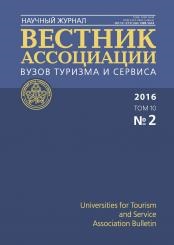Russian Federation
This article deals with the heuristic potential of J.-J. Rousseau’s pedagogical ideas in order to identify the possibility of using them in modern primary school settings, which is explained by the need to improve the process of education as well as by the desire to humanize education in general. Being against the formalization of children’s education, Rousseau in his treatise “Emile, or On Education” presents his vision of ways to overcome the limitations of rational thinking and offers options for acquiring knowledge independently and increasing cognitive activity in teaching a child. The French enlightener J.-J. Rousseau’s ideas provide an opportunity to trace the dynamics of the development of a natural attitude to the child, to better understand the problems of the development of thinking, mental abilities and the organization of the cognitive process in modern primary schools, and outline ways to solve them. The author analyzes Rousseau’s ideas on the principles and conditions for the development of children’s intellectual abilities and mental operations in the interconnection of the sensible and rational when solving teaching objectives. He also reveals the importance of creative knowledge acquisition and research tasks as a means of determining the essence of objects according to their external manifestations. Particular attention is paid to Rousseau’s ideas on the development of sensory experience, the consciousness of teaching, and the management of sensory perception on the basis of the model and the original in generating and acquiring new knowledge. Following the pedagogical principles of Rousseau leads to a revision of the emphasis in school education, where students in most cases have to do exercises in reproducing the material and answer standard questions. The example of Rousseau’s educational system clearly demonstrates how the work of the teacher and the student contributes to positive changes in the development of the latter’s intellectual abilities.
intellectual abilities, sensual, rational, primary school students
1. Baranov S.P. Zametki o svyazi obucheniya s zhizn'yu // Nachal'naya shkola. 1961. № 5. S. 15-19.
2. Baranov S.P. Ob ispol'zovanii chuvstvennyh znaniy pri pervonachal'nom formirovanii ponyatiy // Nachal'naya shkola. 1959. № 10. S. 23-29.
3. Baranov S.P. Suschnost' processa obucheniya. M.: Prosveschenie, 1981. 143 s.
4. Baranov S.P. Chuvstvennyy opyt rebenka v nachal'nom obuchenii. Pod red. I.F. Svadkovskogo. M.: Izd-vo APN RSFSR, 1963. 124 s.
5. Znamenskiy M.A. Trudovaya shkola v Germanii. Russkaya shkola. 1912. № 10. S. 80.
6. Leont'ev A.N. Izbrannye psihologicheskie proizvedeniya: v 2-h t. M.: Pedagogika, 1983. T. 2. 320 s. (Trudy d. chl. i chl.-kor. APN SSSR).
7. Russo Zh.-Zh. Emil', ili O vospitanii. Pedagogicheskie sochineniya: v 2-h t. Pod red. G.N. Dzhibladze; sost. A.N. Dzhurinskiy. M.: Pedagogika, 1981. T. 1. 656 s. (Ped. b-ka / APN SSSR).
8. Selevko G.K. Al'ternativnye pedagogicheskie tehnologii. M.: NII shkol'nyh tehnologiy, 2005. 224 s. (Seriya «Enciklopediya obrazovatel'nyh tehnologiy»).
9. Dalleggio A. Beitr?ge zur Psychologie J.-J. Rousseau’s mit besonderer Ber?cksichtigung des Gef?hlslebens. Jena: Neuenhahn, 2012. 73 S.
10. Davidson T. Rousseau and Education According to Nature. London: Heinemann, 2014. 253 p.
11. Findeisen H. Die philosophischen Grundgedanken der P?dagogik J.-J. Rousseau’s. Borna / Leipzig: R. Roske, 2006. 87 S.
12. Gehrig H. Jean-Jacques Rousseau. Sein Leben und seine p?dagogische Bedeutung. Neuwied / Leipzig: Heufer, 2015. 192 S.
13. Hudson W.H. Rousseau and Naturalism in Life and Thought. Edinburgh: T. & T. Clark, 2011. 260 p.
14. Rang M. Jean-Jacques Rousseau (In: Klassiker der P?dagogik. Von Erasmus von Rotterdam bis Herbert Spencer). Bd. I. M?nchen: Beck, 1979. S. 116-134.
15. Rundstr?m E. Das Naturgef?hl J.-J. Rousseau‘s im Zusammenhang mit der Entwicklungsgeschichte des Naturgef?hls. Hamburg: Hartung, 2010. 108 S.
16. Spangenberg E. Rousseau’s «Emil oder Von der Erziehung» im Lichte der heutigen Erziehungsansichten. Kassel: Scheel, 2007. 74 S.





